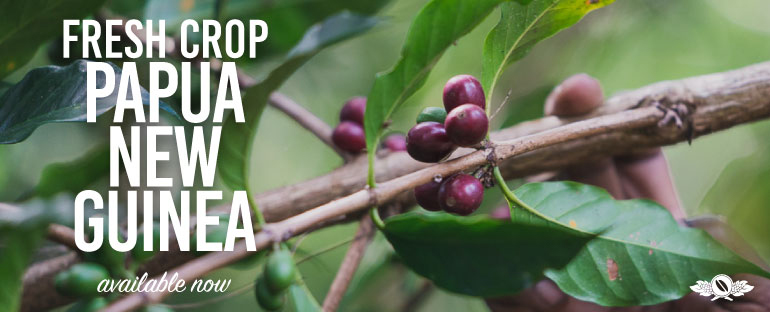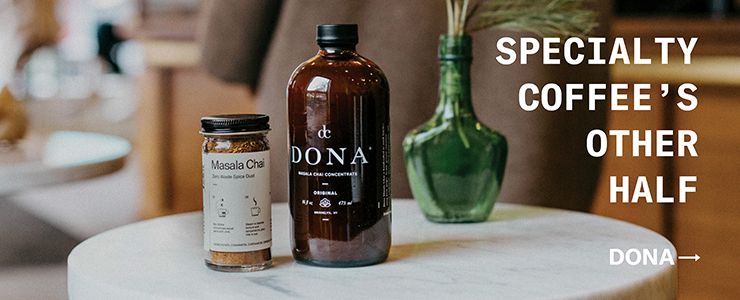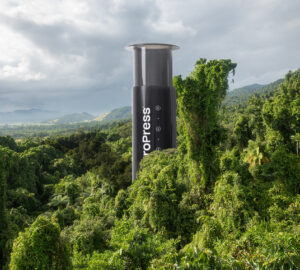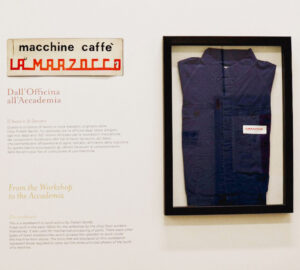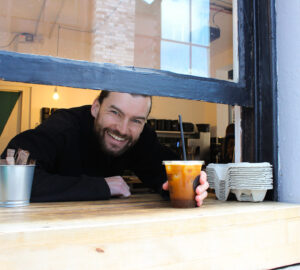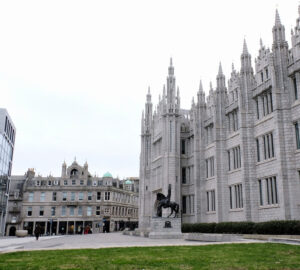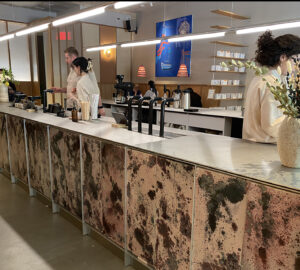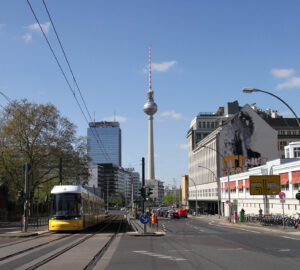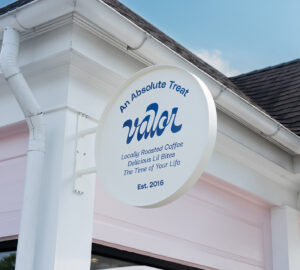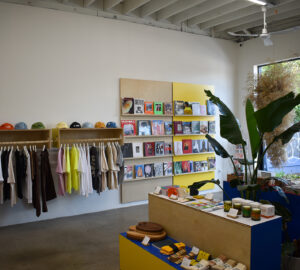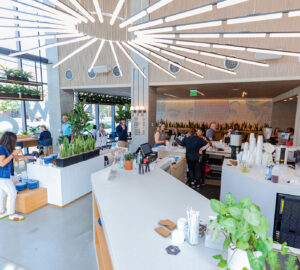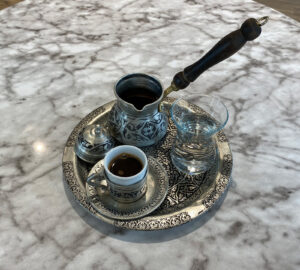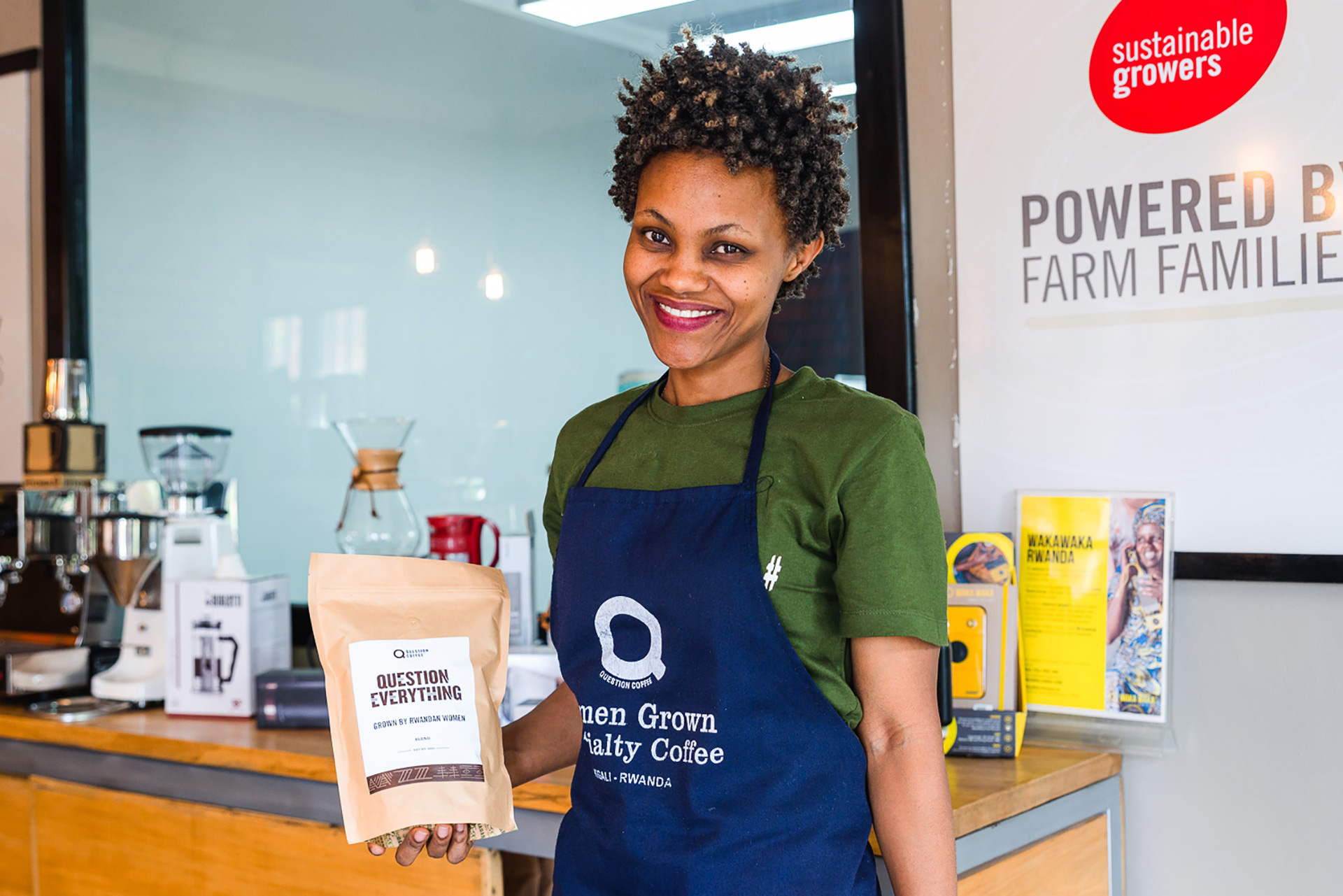
Rwanda, the land of a thousand hills, has emerged from a difficult history to today’s status as an international success story and a world-class destination for growing coffee. The rich volcanic soils, lush rain forests, and temperate climate make it an ideal place for the crop to be cultivated. And yet in Kigali, the country’s bustling national capital and largest city, there has for many years been a lack of local shops to buy and drink locally grown coffee of the caliber being exported elsewhere.
Happily this is changing, led in no small part to destinations like Question Coffee. Upon my arrival, I ask the taxi driver to take me there. From where I stand, on a hilltop in the Gishushu neighborhood, I can see the vast expanse of hills and houses inhabited by more than a million people. I look up at the sign by the gate: Question Coffee Centre, powered by 30,000 Rwandan women coffee farmers. I walk through the courtyard and I see tall plants full of ripe coffee cherries, a Rwandan coffee farm in miniature.
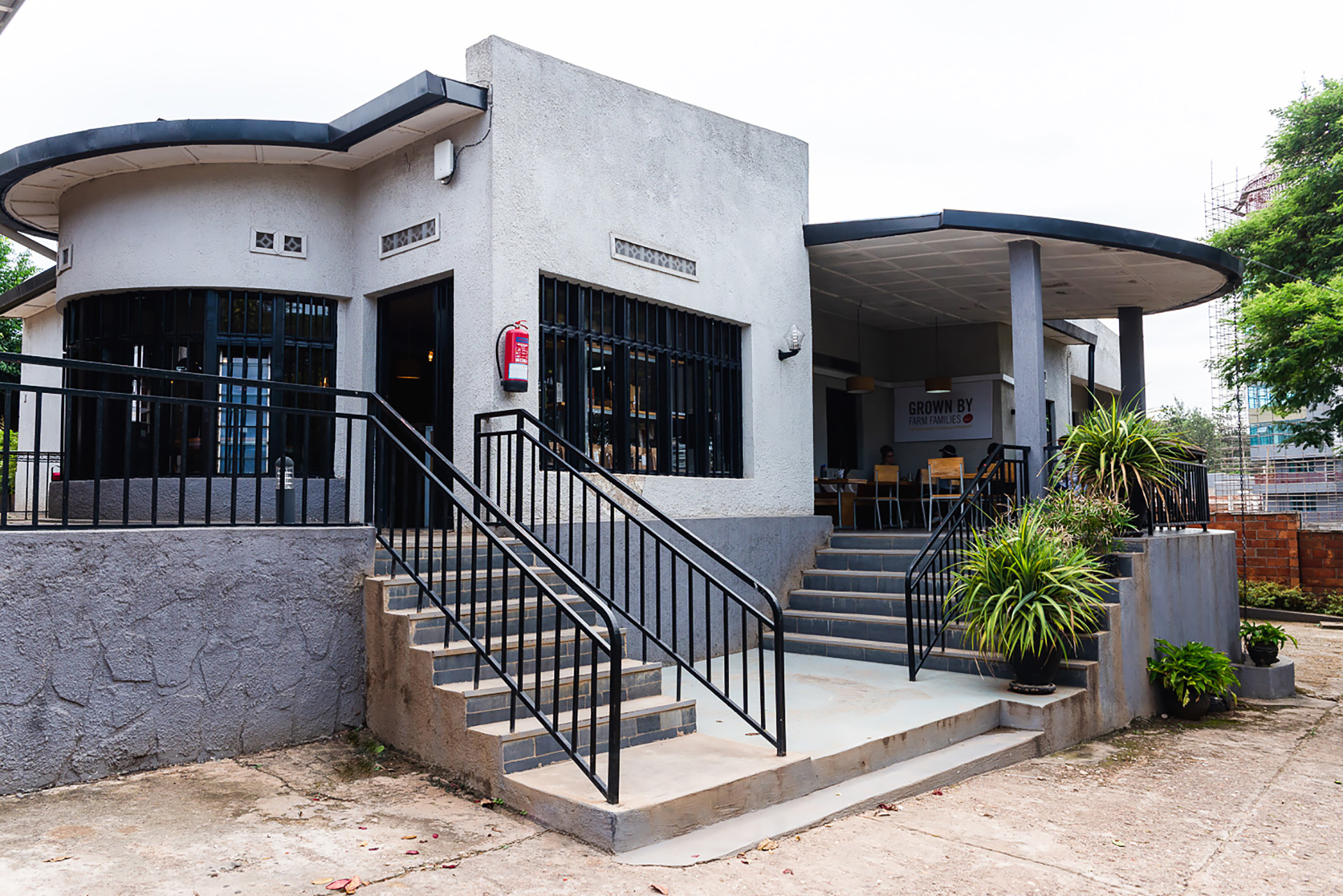
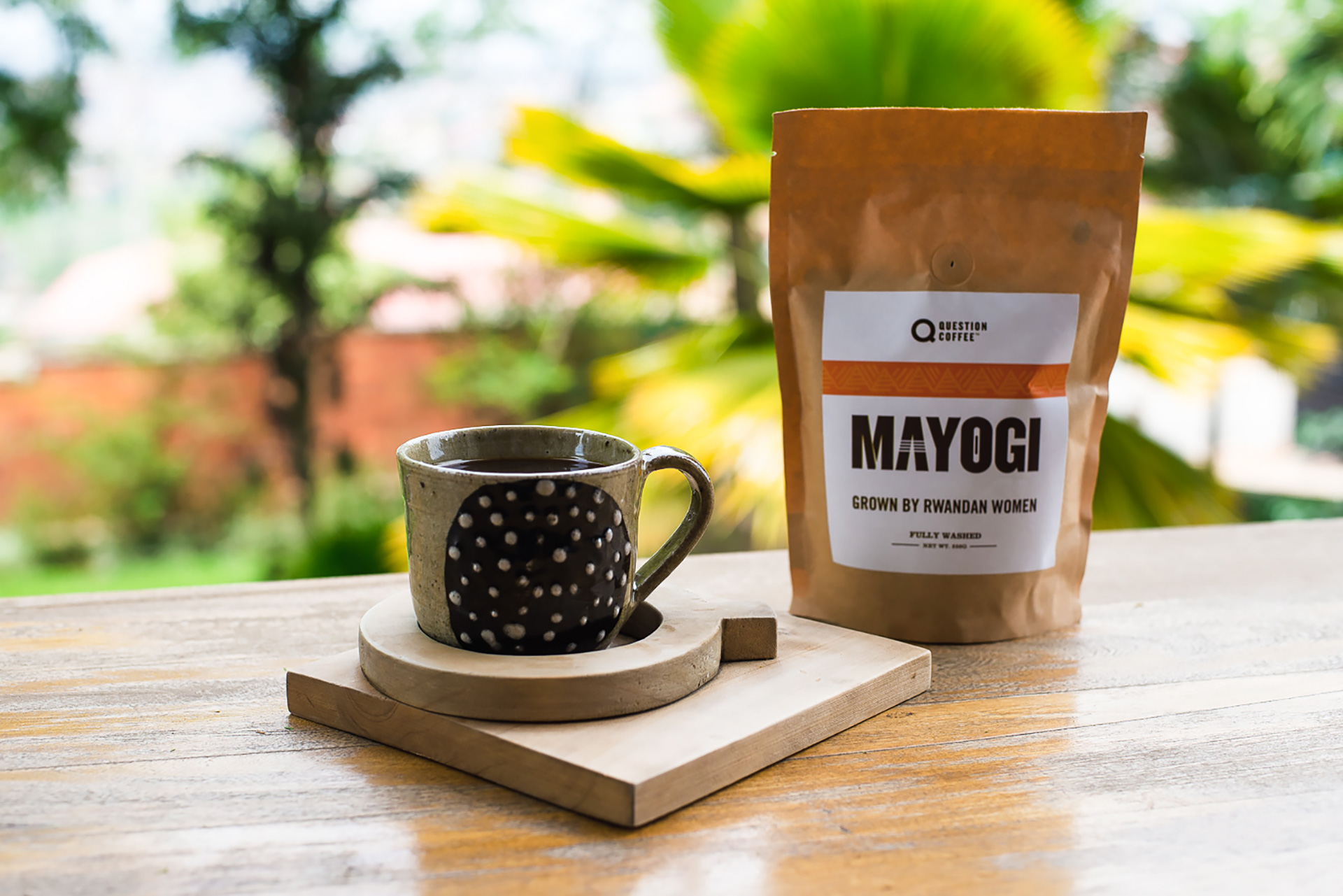
Question Coffee is more than just a coffee shop and small-batch roastery sourcing exceptional coffees from farmers throughout Rwanda. They work closely with Sustainable Growers (formerly known as Relationship Coffee Institute) an organization formed in 2013 by Bloomberg Philanthropies in partnership with Sustainable Harvest. Question Coffee re-invests all proceeds from sales into training women farmers across Rwanda.
The training programs focus on coffee agronomy techniques and business practices and provide women farmers with the knowledge and skills to form direct, productive relationships with coffee cooperatives, processors, importers, and roasters. Ultimately, the goal is to improve the coffee quality, increase its value in local and global markets, and increase the farmers’ yields and their incomes as a result.
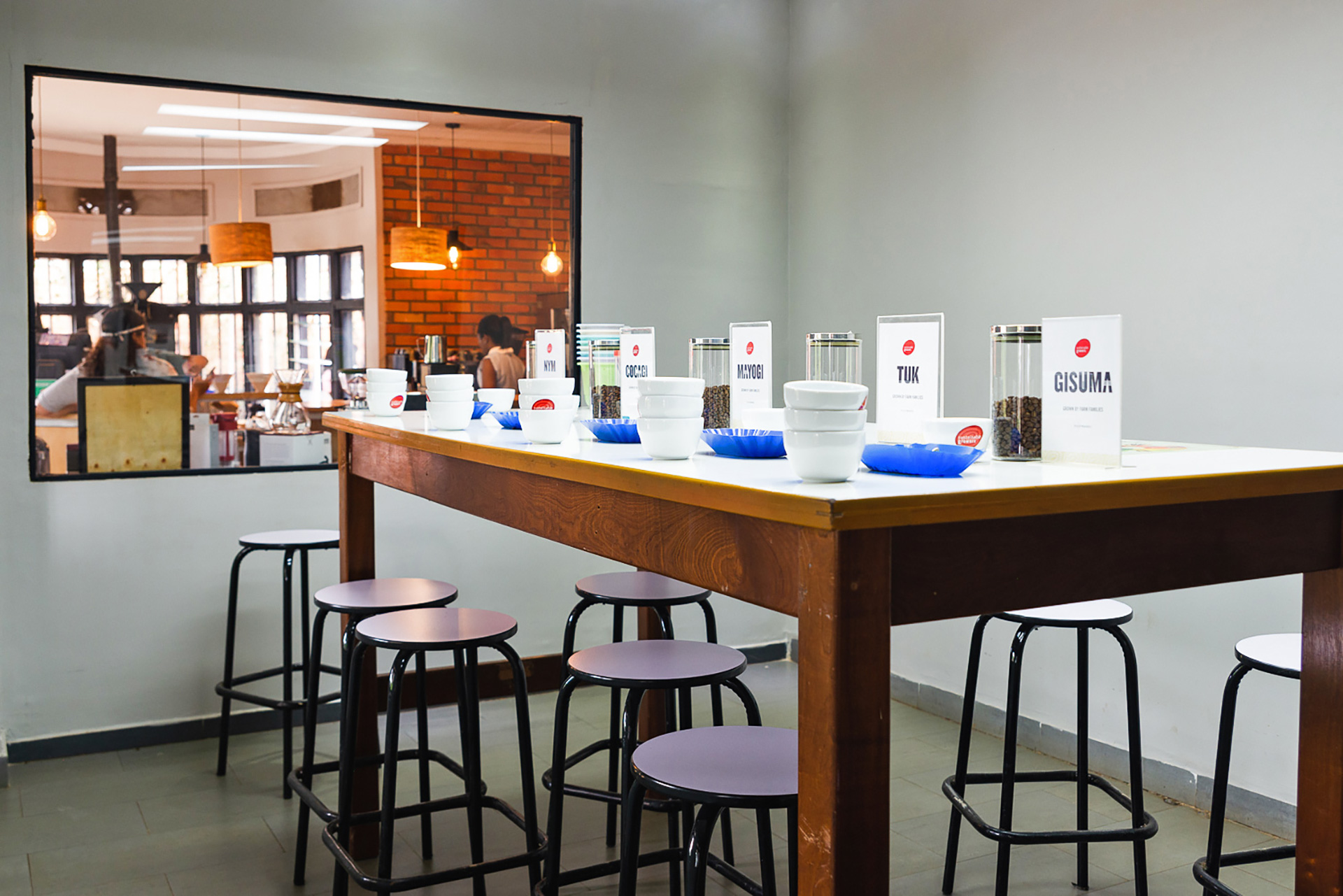
I don’t know any of that yet as I walk into the Question Coffee shop. All I know is that I am excited at the prospect of enjoying a nice coffee after several long flights. The cafe feels new and familiar at the same time: white walls, exposed brick, wooden tables, and young people drinking cups of coffee, chatting, or tapping away at their laptops. Pretty much like in any other third wave shop anywhere in the world.
As I queue at the till to place my order, I look around the shop. The space is divided by a long bar counter with AeroPress and coffee drippers, a La Marzocco Linea and—at the back—a Giesen roaster. Two female baristas with big smiles on their faces are taking orders and brewing coffees. There is a table filled with coffee brewing tools for sale (AeroPress, Chemex, grinders, paper filters, etc.); later I’m told that Question Coffee is one of the few stores in Rwanda where you can buy pour-over equipment.

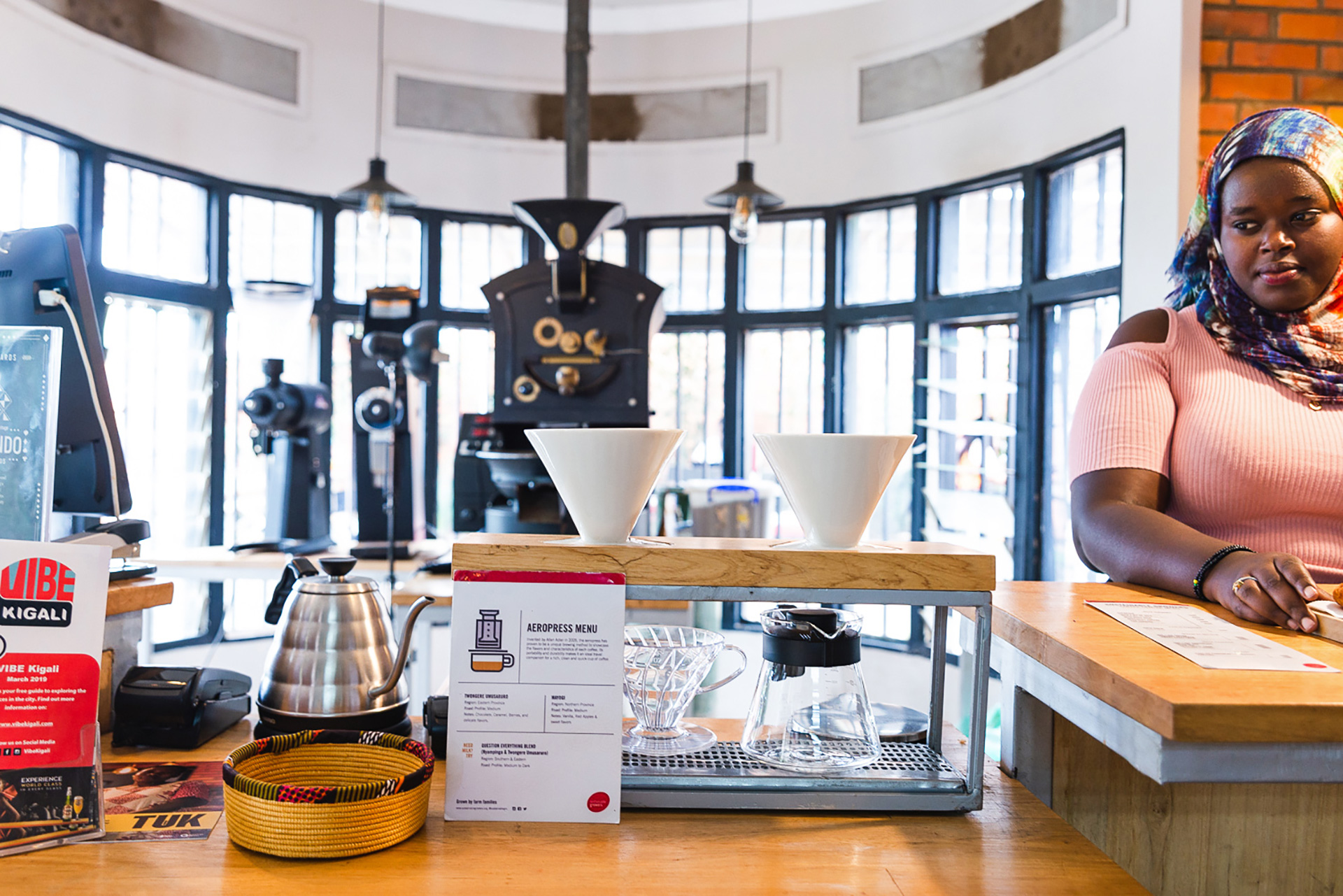
Question Coffee bags are lined up on the shelf; they are filled with beans selected from the highest-performing women-led cooperatives across Question Coffee programs. Spend enough time in Rwanda and you will likely drink Question Coffee without the need to visit their cafe: it is served in major hotel chains, in national parks and local restaurants, and by the national airline.
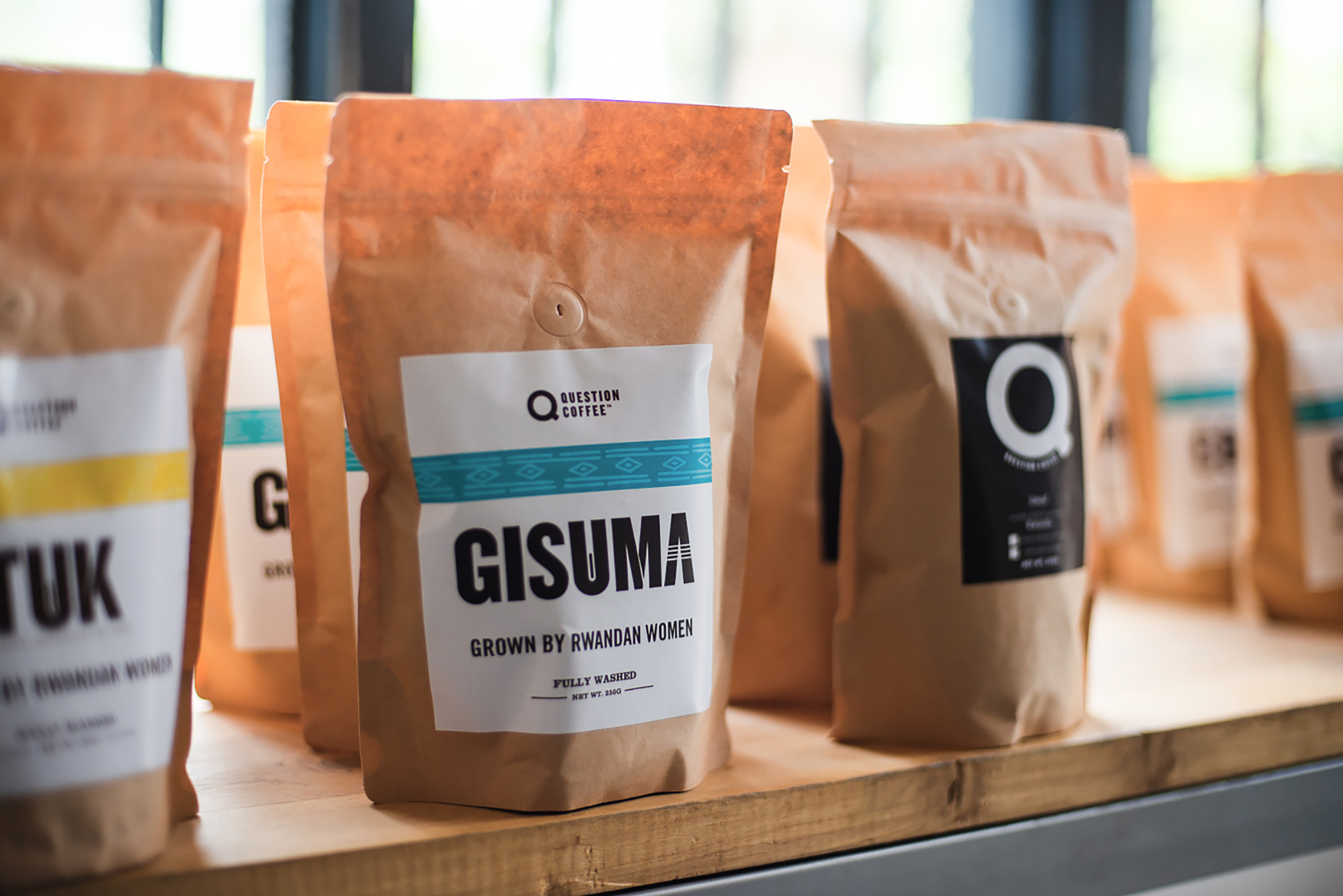
There’s the house blend, Question Everything, a medium-dark roast blend from Nyampinga and Twongere Umusaruro coop farms. It’s best for milky drinks (espresso or filter) because of its sweetness and hints of stone fruit, brown sugar, and chocolate. It’s delicious in the flat white that I have waited days to drink and I am now savoring every sip of.
I’m back at Question Coffee shop a few days later, at the end of my Rwanda trip. I want to drink a filter coffee, and so my barista recommends Mayogi on AeroPress. This coffee grows in Gicumbi, a farm in Rwanda’s northern province, which employs 2,500 farmers (of which more than 1,500 are women). It’s fully washed, medium roasted, with tasting notes of vanilla and red apples.
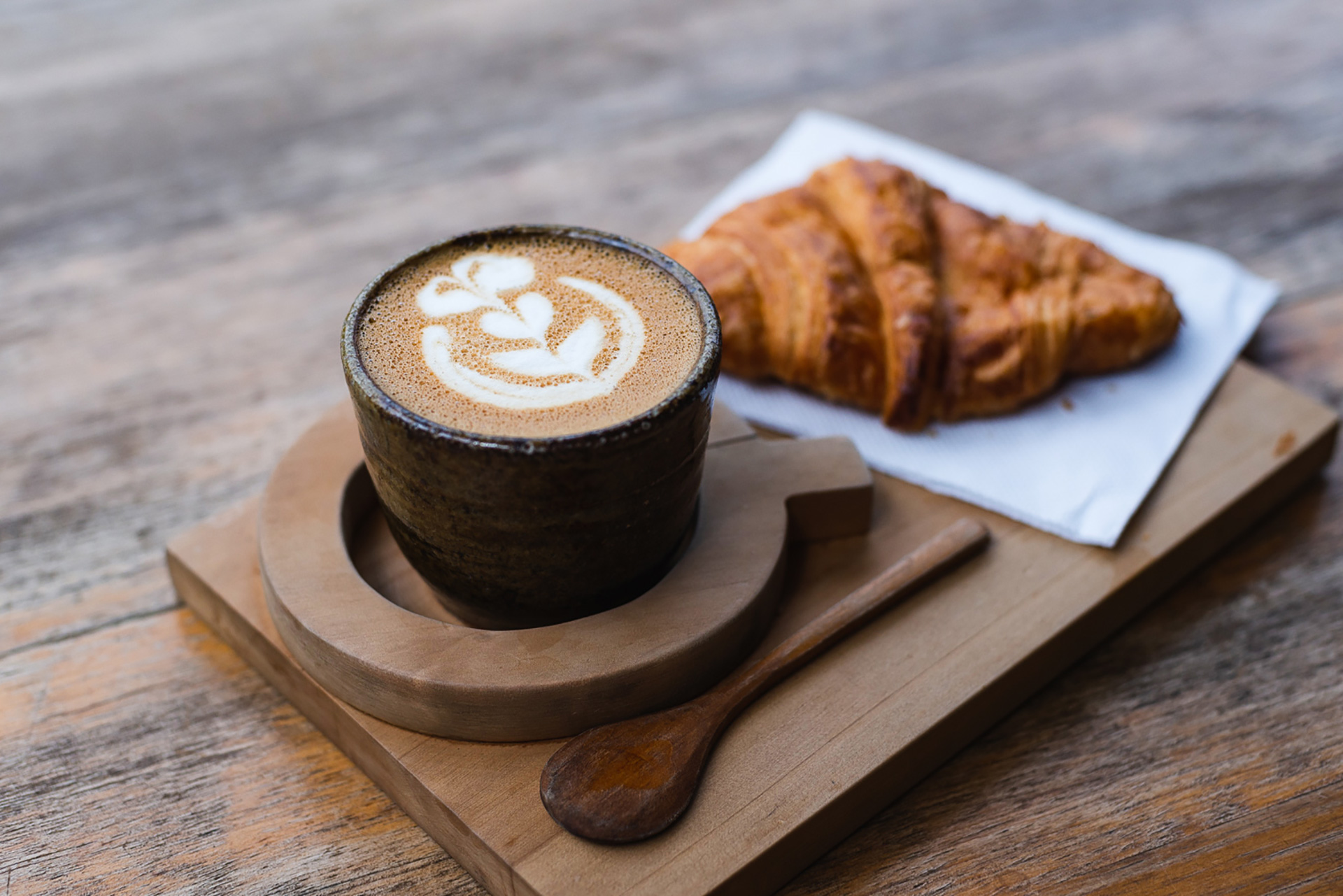
In addition to espresso-based drinks and filter coffee, Question Coffee serves cold brew, flavored coffee drinks, teas, and soda. The food offer is limited to croissant/pain au chocolat and pretzels. Despite the abundance of tasty avocados in Rwanda, avo toast hasn’t reached this speciality coffee shop yet.
There’s no doubt that Question Coffee is the place to be for coffee lovers living in Kigali or passing through the city. They regularly host speciality coffee classes in disciplines including roasting, sensory skills, and barista courses, as well as full-day trips out to cooperative farms in order to meet growers first hand. In this way the work here is about much more than visitors like me or expats; it’s about training the next generation of coffee professionals in Rwanda and keeping on this country’s remarkable winning streak.
Giulia Mule is a Sprudge.com contributor based in London. Read more Giulia Mule on Sprudge.










